1-Phenyl-2,4-pentanedione
Modify Date: 2025-09-18 14:34:22

1-Phenyl-2,4-pentanedione structure
|
Common Name | 1-Phenyl-2,4-pentanedione | ||
|---|---|---|---|---|
| CAS Number | 3318-61-4 | Molecular Weight | 176.21200 | |
| Density | 1.061g/cm3 | Boiling Point | 277.7ºC at 760mmHg | |
| Molecular Formula | C11H12O2 | Melting Point | N/A | |
| MSDS | N/A | Flash Point | 103.2ºC | |
| Name | 1-phenylpentane-2,4-dione |
|---|---|
| Synonym | More Synonyms |
| Density | 1.061g/cm3 |
|---|---|
| Boiling Point | 277.7ºC at 760mmHg |
| Molecular Formula | C11H12O2 |
| Molecular Weight | 176.21200 |
| Flash Point | 103.2ºC |
| Exact Mass | 176.08400 |
| PSA | 34.14000 |
| LogP | 1.77730 |
| Index of Refraction | 1.511 |
| InChIKey | NROOHYGFTHTDFF-UHFFFAOYSA-N |
| SMILES | CC(=O)CC(=O)Cc1ccccc1 |
| Storage condition | 2-8°C |
Synonym: Section 2 - COMPOSITION, INFORMATION ON INGREDIENTS
Risk Phrases: None Listed. Section 3 - HAZARDS IDENTIFICATION EMERGENCY OVERVIEW
Not available. Potential Health Effects The toxicological properties of this material have not been investigated. Use appropriate procedures to prevent opportunities for direct contact with the skin or eyes and to prevent inhalation. Section 4 - FIRST AID MEASURES Eyes: Flush eyes with plenty of water for at least 15 minutes, occasionally lifting the upper and lower eyelids. Get medical aid immediately. Skin: Get medical aid. Flush skin with plenty of water for at least 15 minutes while removing contaminated clothing and shoes. Remove contaminated clothing and shoes. Ingestion: If victim is conscious and alert, give 2-4 cupfuls of milk or water. Get medical aid immediately. Inhalation: Get medical aid immediately. Remove from exposure and move to fresh air immediately. If not breathing, give artificial respiration. If breathing is difficult, give oxygen. Notes to Physician: Section 5 - FIRE FIGHTING MEASURES General Information: As in any fire, wear a self-contained breathing apparatus in pressure-demand, MSHA/NIOSH (approved or equivalent), and full protective gear. During a fire, irritating and highly toxic gases may be generated by thermal decomposition or combustion. Extinguishing Media: Use agent most appropriate to extinguish fire. Section 6 - ACCIDENTAL RELEASE MEASURES General Information: Use proper personal protective equipment as indicated in Section 8. Spills/Leaks: Clean up spills immediately, observing precautions in the Protective Equipment section. Section 7 - HANDLING and STORAGE Handling: Wash thoroughly after handling. Remove contaminated clothing and wash before reuse. Avoid contact with eyes, skin, and clothing. Avoid ingestion and inhalation. Storage: Store in a cool, dry place. Keep container closed when not in use. Section 8 - EXPOSURE CONTROLS, PERSONAL PROTECTION Engineering Controls: Use process enclosure, local exhaust ventilation, or other engineering controls to control airborne levels. Exposure Limits CAS# 3318-61-4: Personal Protective Equipment Eyes: Wear chemical splash goggles. Skin: Wear appropriate protective gloves to prevent skin exposure. Clothing: Wear appropriate protective clothing to minimize contact with skin. Respirators: A respiratory protection program that meets OSHA's 29 CFR 1910.134 and ANSI Z88.2 requirements or European Standard EN 149 must be followed whenever workplace conditions warrant respirator use. Section 9 - PHYSICAL AND CHEMICAL PROPERTIES Physical State: Not available Color: Not available. Odor: Not available. pH: Not available. Vapor Pressure: Not available. Viscosity: Not available. Boiling Point: 144 deg C @ 15.00mm Hg Freezing/Melting Point: Not available. Autoignition Temperature: Not available. Flash Point: > 110 deg C (> 230.00 deg F) Explosion Limits, lower: Not available. Explosion Limits, upper: Not available. Decomposition Temperature: Solubility in water: Specific Gravity/Density: 1.0540g/cm3 Molecular Formula: C11H12O2 Molecular Weight: 176.22 Section 10 - STABILITY AND REACTIVITY Chemical Stability: Stable under normal temperatures and pressures. Conditions to Avoid: Incompatible materials, strong oxidants. Incompatibilities with Other Materials: Not available. Hazardous Decomposition Products: Irritating and toxic fumes and gases. Hazardous Polymerization: Not available. Section 11 - TOXICOLOGICAL INFORMATION RTECS#: CAS# 3318-61-4 unlisted. LD50/LC50: Not available. Carcinogenicity: 2,4-pentanedione, 1-phenyl- - Not listed by ACGIH, IARC, or NTP. Section 12 - ECOLOGICAL INFORMATION Section 13 - DISPOSAL CONSIDERATIONS Dispose of in a manner consistent with federal, state, and local regulations. Section 14 - TRANSPORT INFORMATION IATA Not regulated as a hazardous material. IMO Not regulated as a hazardous material. RID/ADR Not regulated as a hazardous material. Section 15 - REGULATORY INFORMATION European/International Regulations European Labeling in Accordance with EC Directives Hazard Symbols: Not available. Risk Phrases: Safety Phrases: S 24/25 Avoid contact with skin and eyes. WGK (Water Danger/Protection) CAS# 3318-61-4: No information available. Canada CAS# 3318-61-4 is listed on Canada's NDSL List. CAS# 3318-61-4 is not listed on Canada's Ingredient Disclosure List. US FEDERAL TSCA CAS# 3318-61-4 is listed on the TSCA inventory. SECTION 16 - ADDITIONAL INFORMATION N/A |
| HS Code | 2914399090 |
|---|
| Precursor 9 | |
|---|---|
| DownStream 4 | |
| HS Code | 2914399090 |
|---|---|
| Summary | 2914399090. other aromatic ketones without other oxygen function. VAT:17.0%. Tax rebate rate:13.0%. . MFN tariff:5.5%. General tariff:30.0% |
| 1-Phenyl-2,4-pentandion |
| 2,4-Pentanedione,1-phenyl |
| 1-Phenyl-pentan-2,4-dion |
| 1-phenyl-pentane-2,4-dione |
| 1-PHENYL-2,4-PENTANEDIONE |
| 1-phenyl-2,4-pentadione |
| 3-phenylacetylacetone |
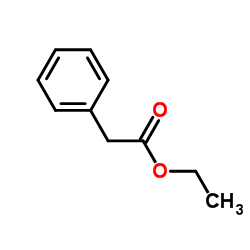 CAS#:101-97-3
CAS#:101-97-3 CAS#:67-64-1
CAS#:67-64-1 CAS#:4346-18-3
CAS#:4346-18-3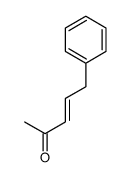 CAS#:10521-97-8
CAS#:10521-97-8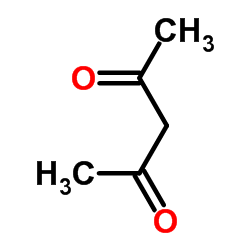 CAS#:123-54-6
CAS#:123-54-6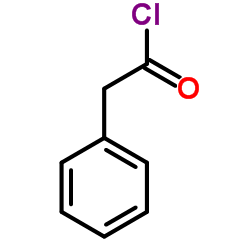 CAS#:103-80-0
CAS#:103-80-0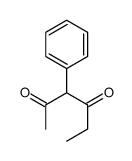 CAS#:109839-21-6
CAS#:109839-21-6 CAS#:1007-32-5
CAS#:1007-32-5 CAS#:141-78-6
CAS#:141-78-6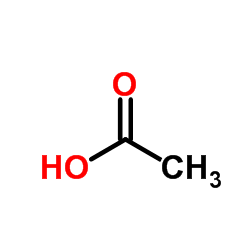 CAS#:64-19-7
CAS#:64-19-7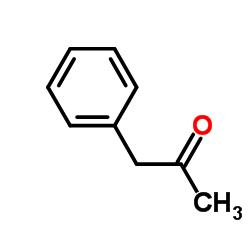 CAS#:103-79-7
CAS#:103-79-7 CAS#:64648-09-5
CAS#:64648-09-5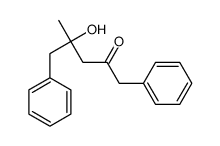 CAS#:53189-96-1
CAS#:53189-96-1